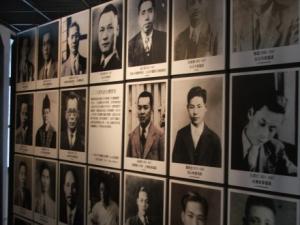This past Thursday, Taiwan commemorated the 61st anniversary of the February 28 Incident (hereafter referred to as 228), an uprising against KMT authoritarian rule initially sparked by the beating of a female vendor in Taipei for selling untaxed cigarettes. During the ensuing military crackdown, tens of thousands of Taiwan’s elite were arrested, tortured, and murdered, with the violence lasting into the spring of 1947 and helping usher in the era known as the White Terror (白色恐怖).
The untold suffering of 228 has led to decades of division in Taiwan society, because while the conflict’s victims included both Taiwanese and Mainlanders, the KMT brought the full brunt of state violence to persecute innocent men and women. 228 remained taboo for decades under Chiang Kai-shek’s dictatorial rule (discussed in my previous blogpost), with the first scholars to lecture on this subject writing their wills before heading off to class. It took until 1995 for then KMT President Lee Teng-hui (李登輝) to offer the first official apology, with the Legislative Yuan making 228 an official holiday in 1998.








